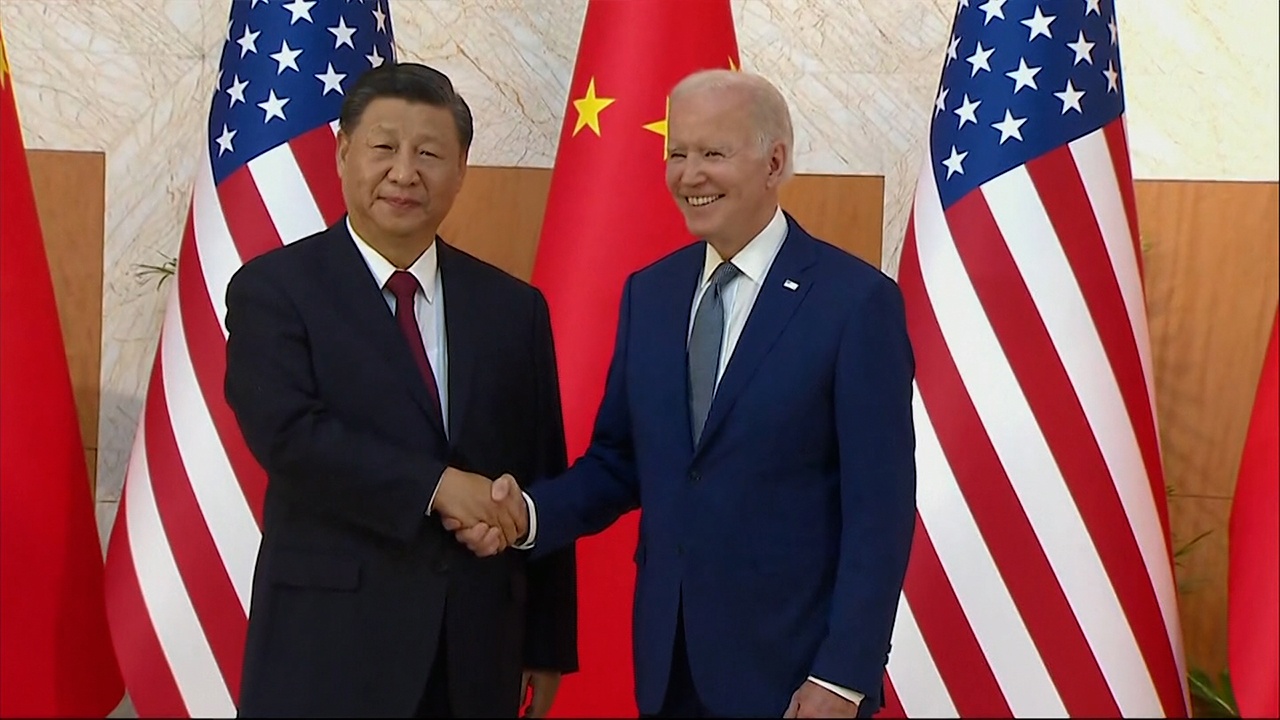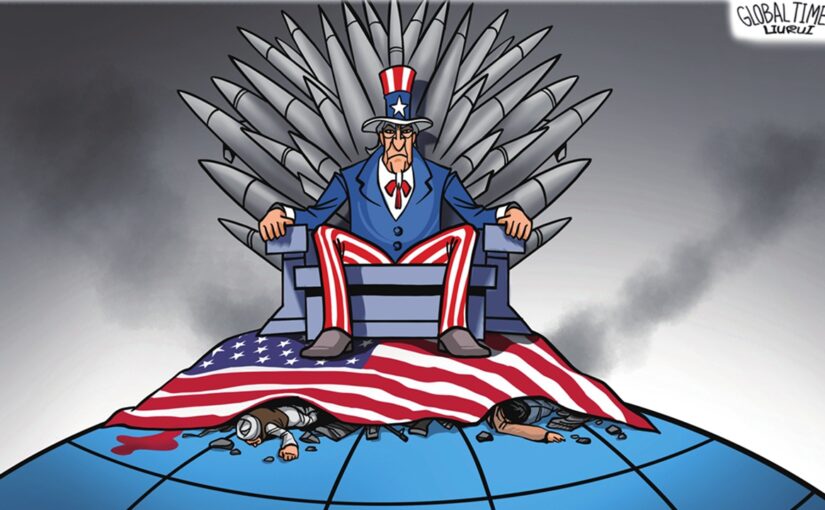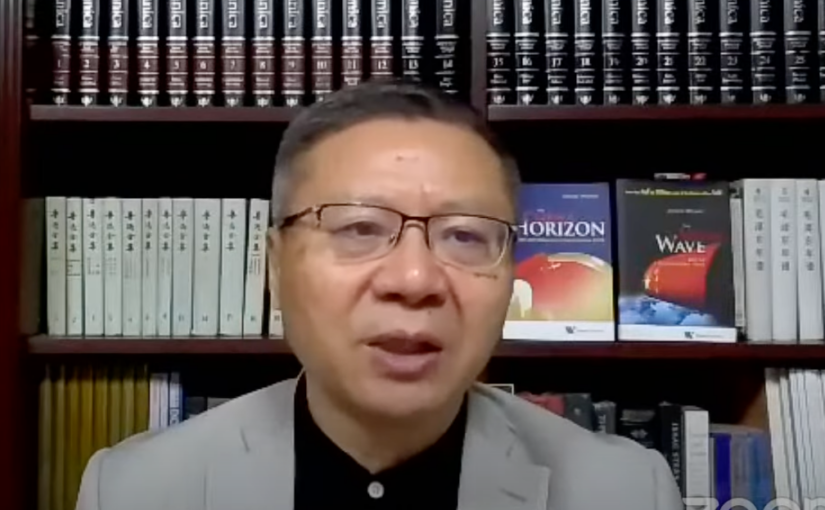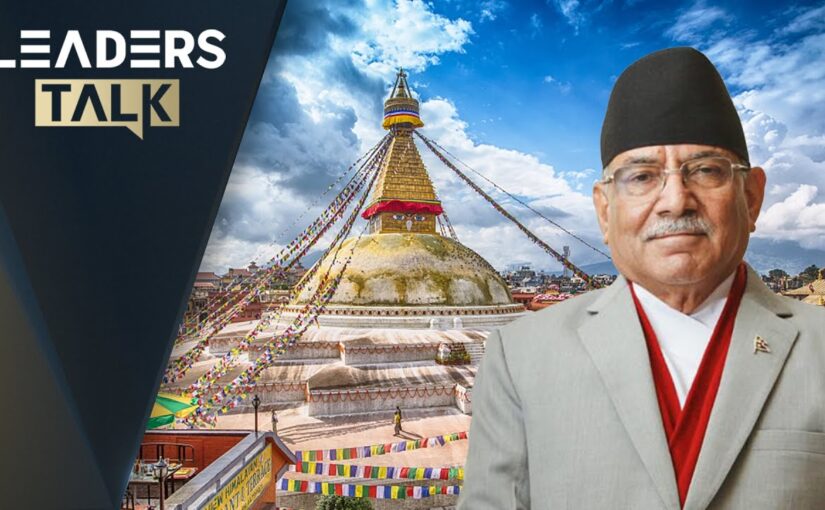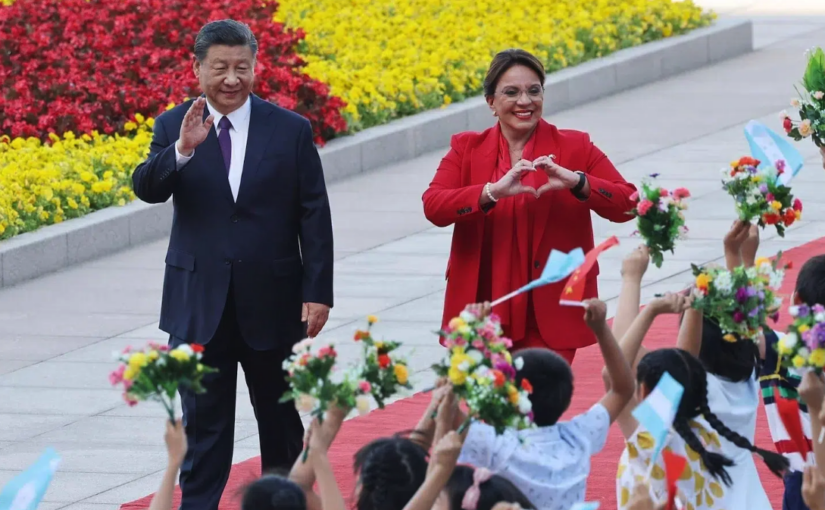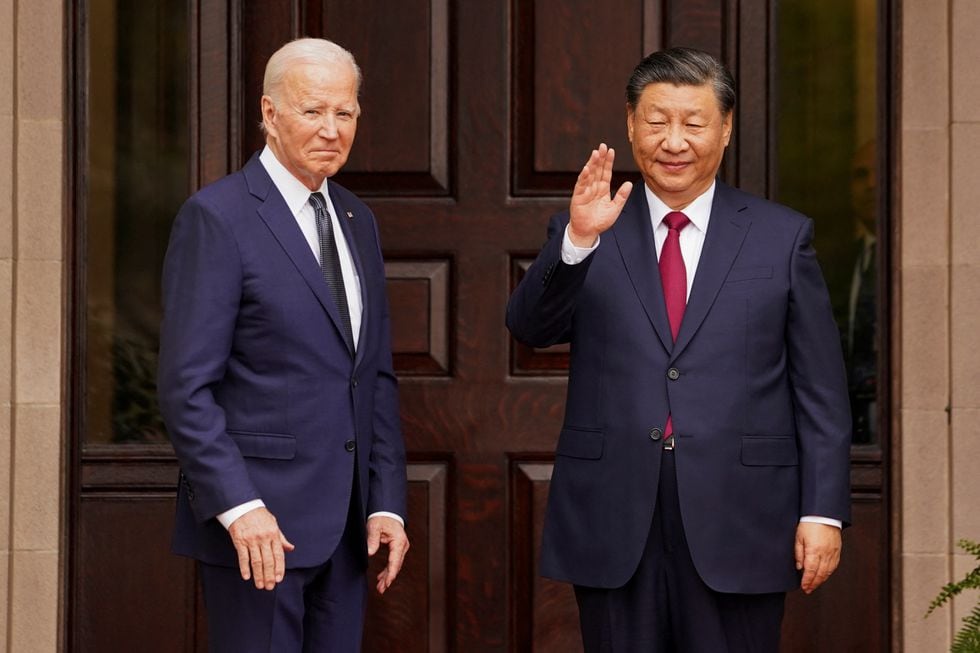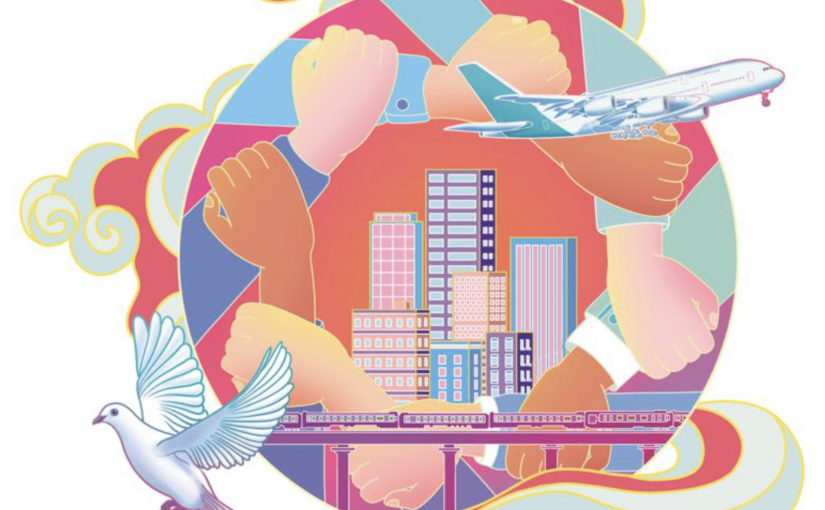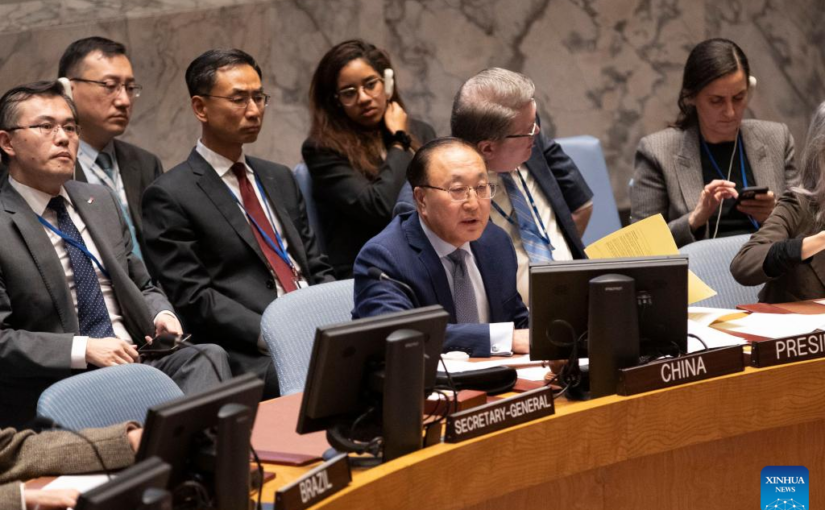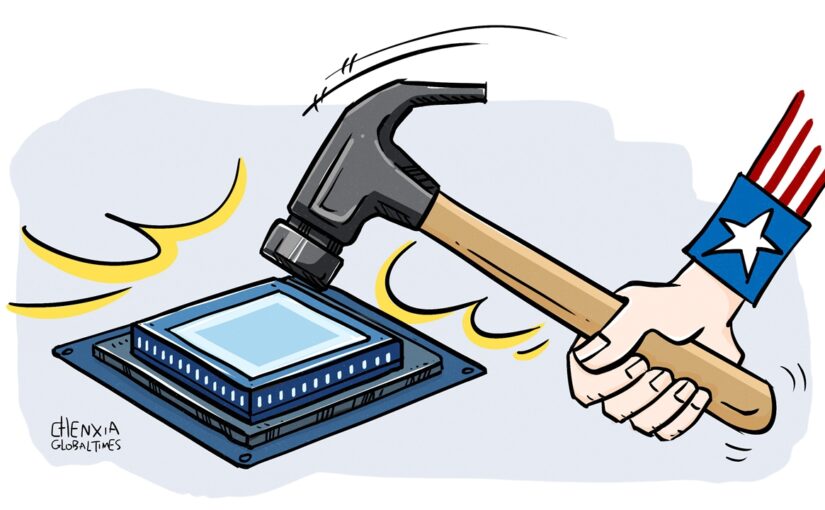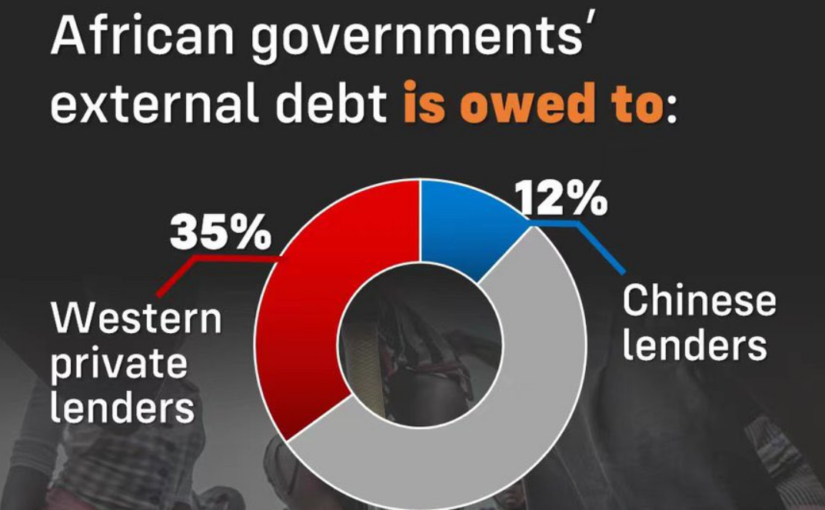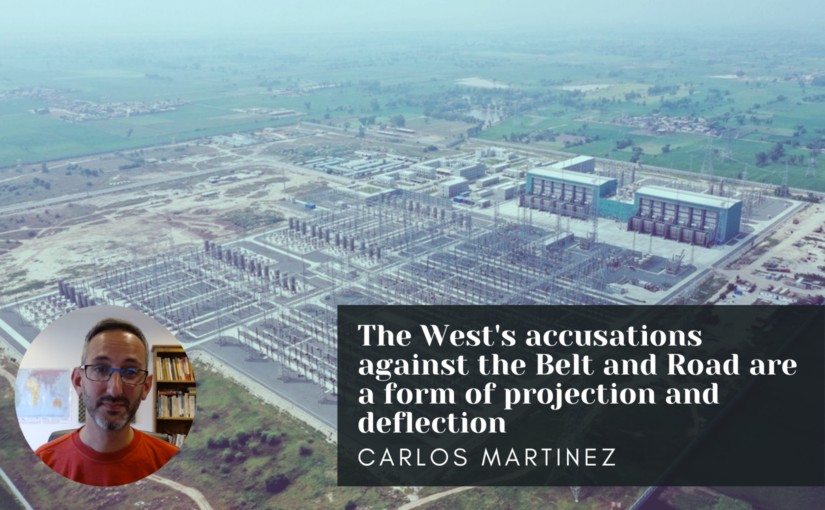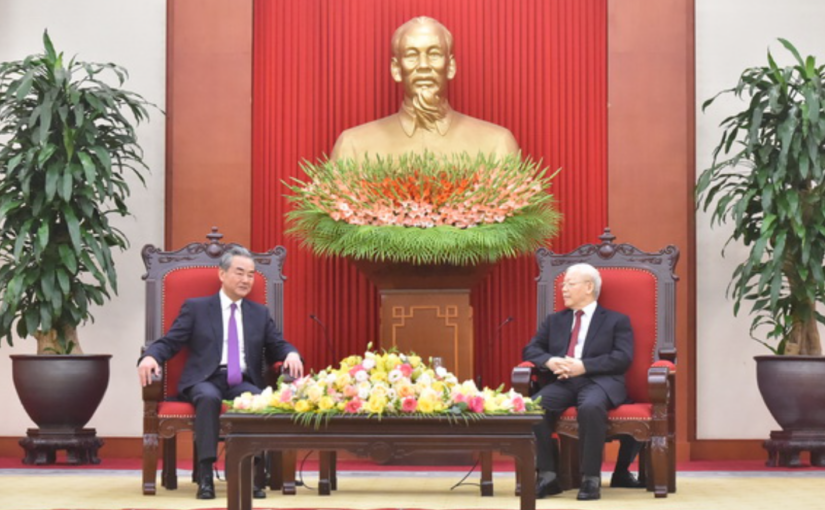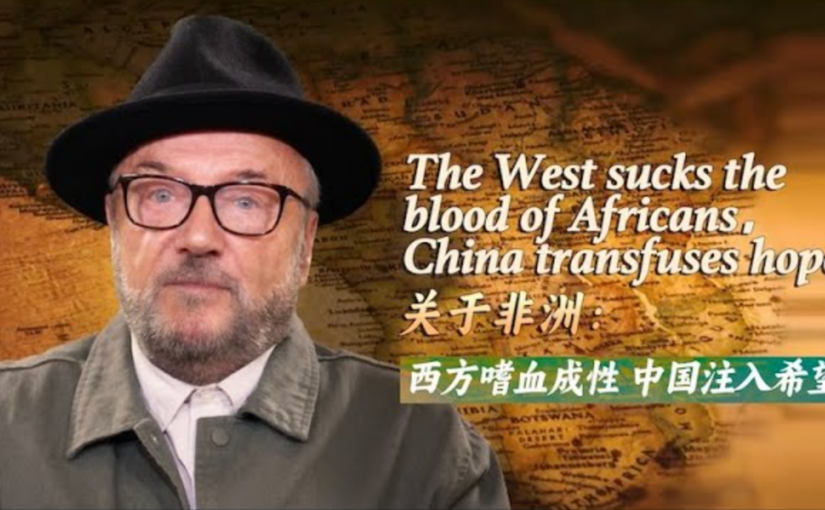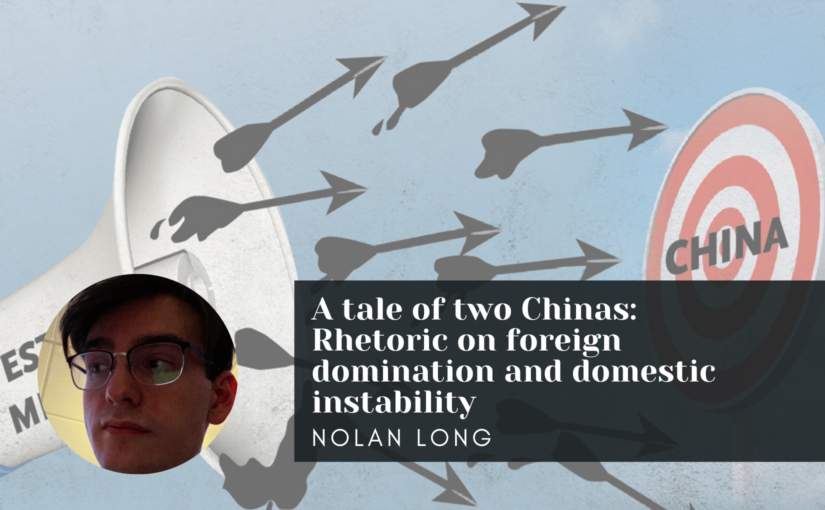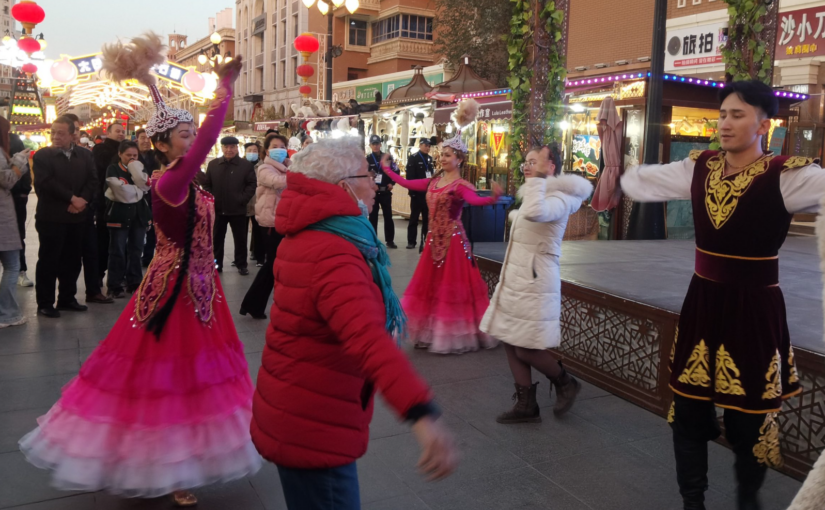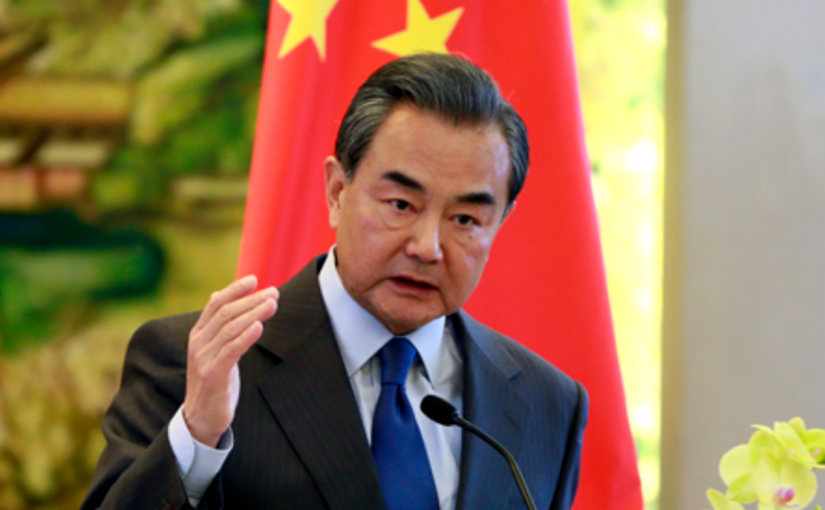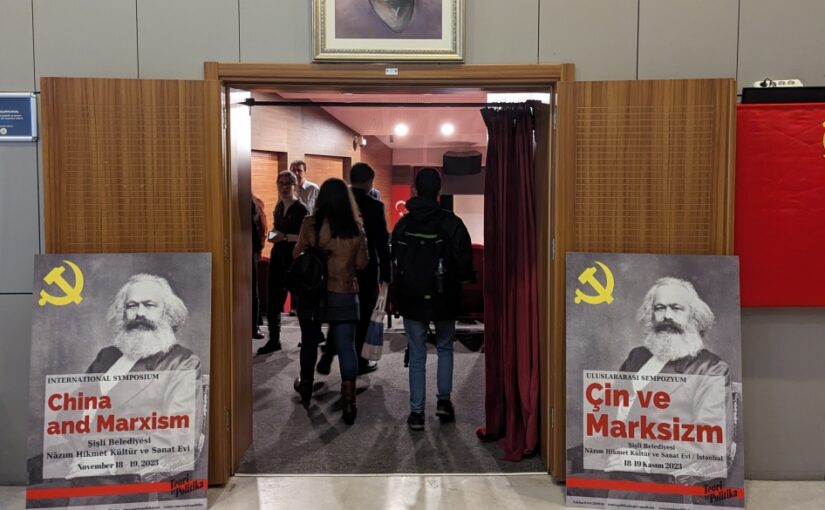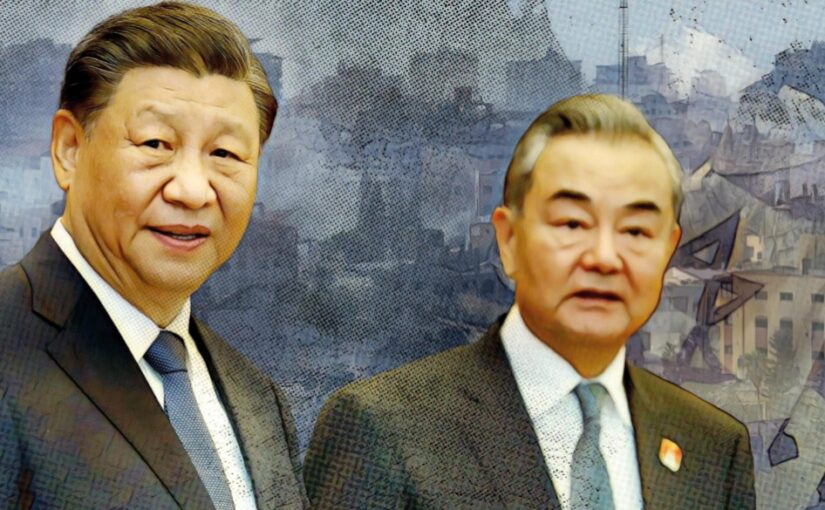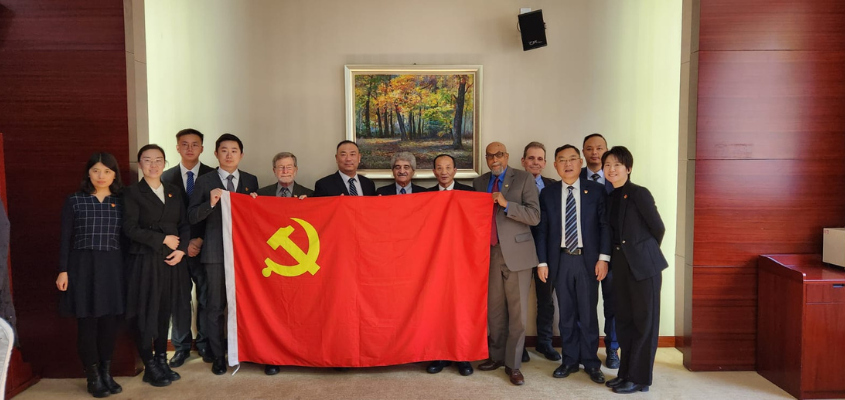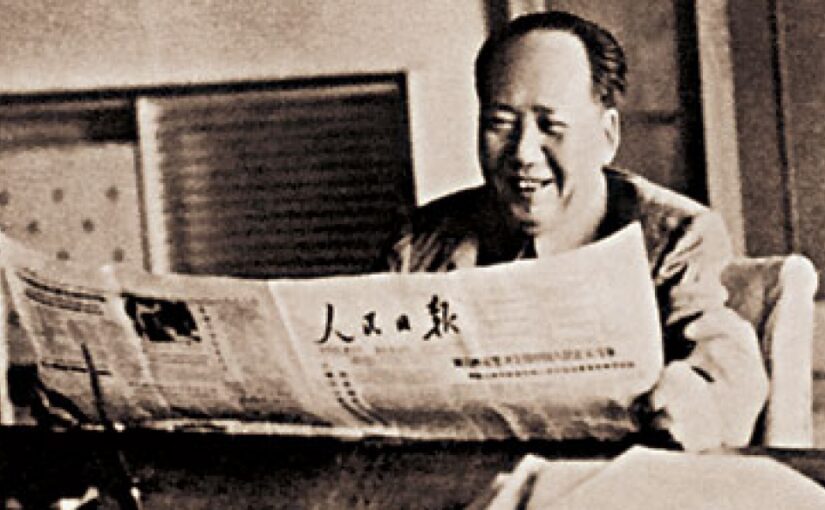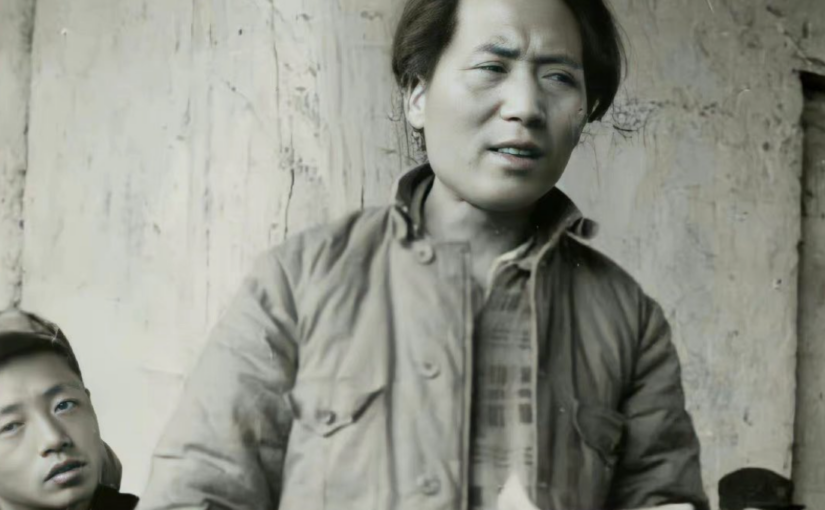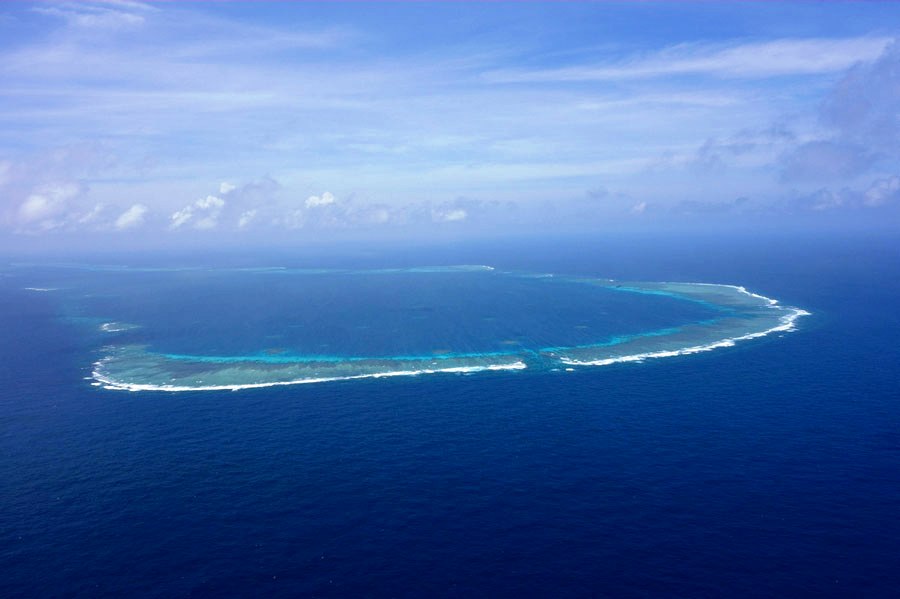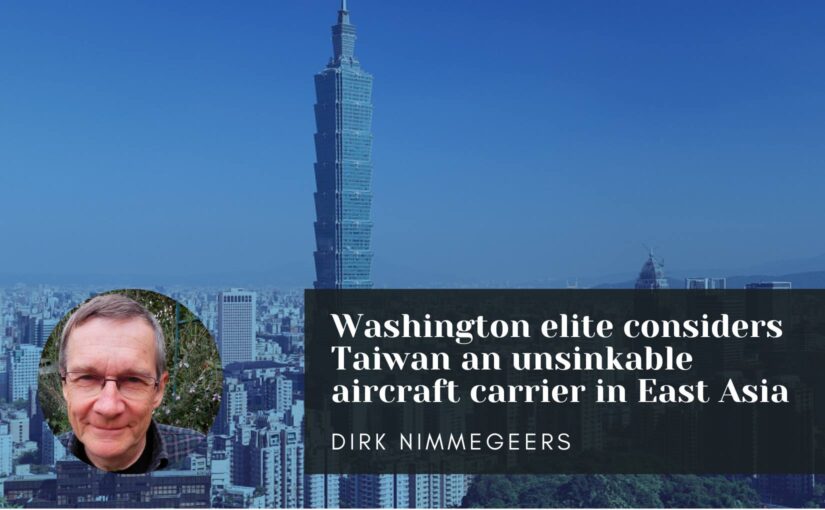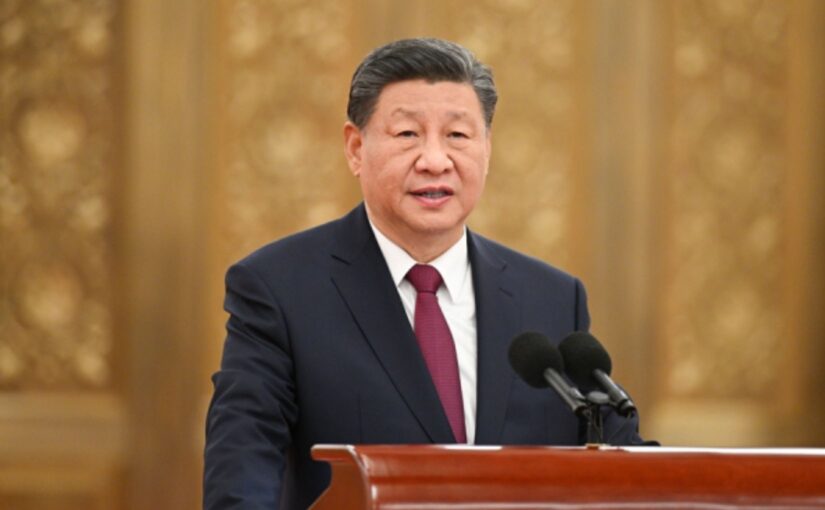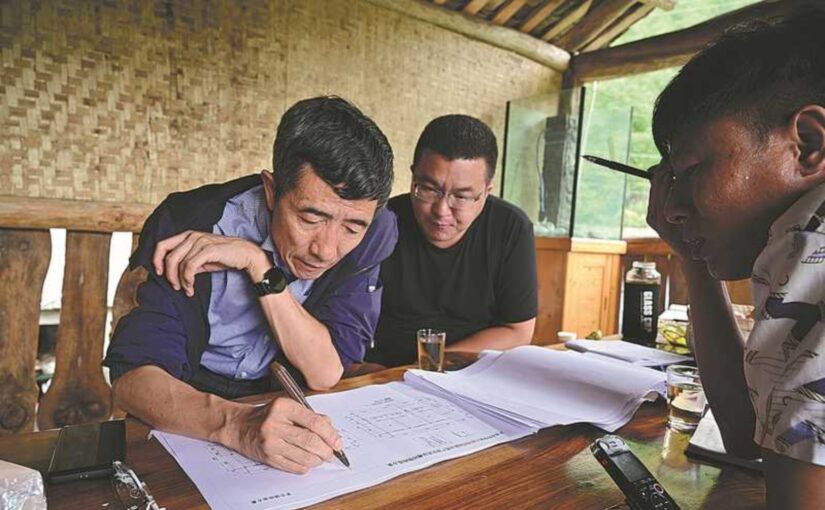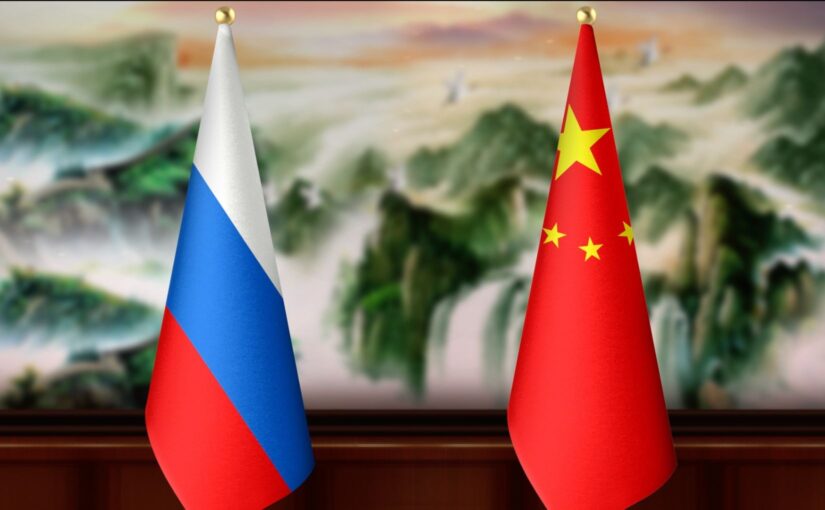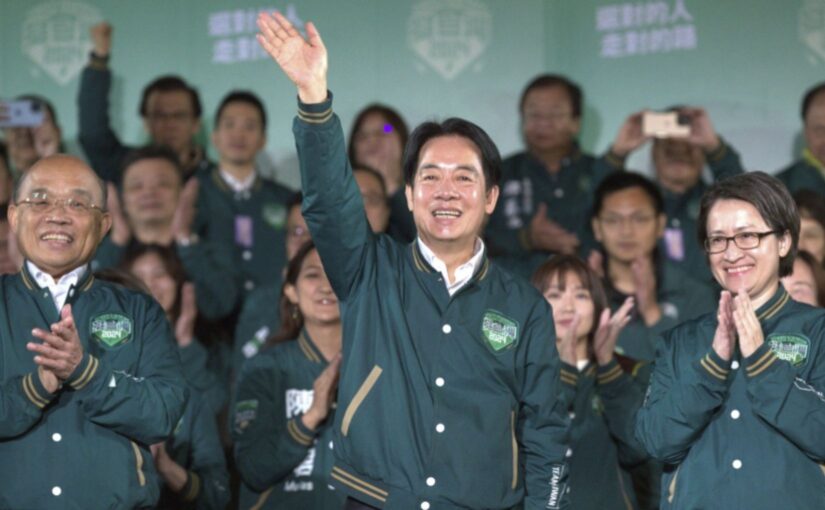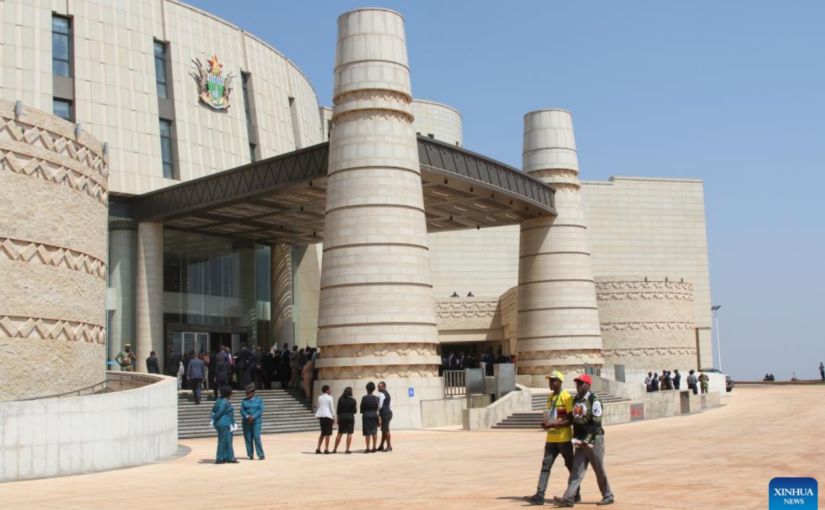
China hands over new parliament building to Zimbabwe
On Thursday October 26, the Chinese government handed over to Zimbabwe a new parliament building that was constructed and funded by China. The building, which photographs show to have been built in a distinct Zimbabwean national style, was handed over to President Emmerson Mnangagwa at a ceremony attended by government officials, diplomats, Chinese embassy officials, and others.
Speaking at the ceremony, President Mnangagwa said that the building is a pivot point around which a new administrative capital will be built.
“The new parliament building, which stands as one of the most magnificent and modern buildings in our country, signifies the excellent relations that exist between Zimbabwe and the People’s Republic of China,” he added.
These excellent relations date back to the Zimbabwean people’s armed struggle to overthrow the racist and colonial regime and win national independence. China fully supported that struggle. President Mnangagwa himself was one of those who were trained in guerilla warfare in China.
The timing of the handover of the parliament building was very apposite as it came the day after Anti-Sanctions Day. October 25 was designated as Anti-Sanctions Day by the 16-member Southern African Development Community (SADC) in response to the sanctions placed on Zimbabwe, and other anti-imperialist, independent countries, by leading imperialist powers such as the United States and Britain. According to Zimbabwean Vice-President Constantino Chiwenga, addressing an Anti-Sanctions Day rally in the capital, Harare:
“Since 2001, we estimate that Zimbabwe has lost or missed over 150 billion US dollars through frozen assets, trade embargoes, export and investment restrictions from potential bilateral donor support, development loans, the International Monetary Fund and World Bank balance of payment support, and commercial loans.”
A meeting was also held in New York to express solidarity with the Zimbabwean people on this occasion. It was organised by the December 12 Movement (D12), a revolutionary nationalist organisation that has maintained close ties with Zimbabwe and its ruling ZANU-PF party for many years. While three members of D12 were in Zimbabwe to take part in the anti-sanctions activities there, veteran member Colette Pean told the New York gathering that settlers had stolen 86% of Zimbabwe’s land. Despite the sanctions, Zimbabwe has built hydroelectric dams and shared development projects equally among its 10 provinces.
US and other capitalists now want to grab Zimbabwe’s large lithium reserves, vital to making batteries for electric cars. But December 12th Movement member Vinson Verdree said Zimbabwe won’t let its lithium be stolen. The country will build a battery plant and other facilities to process the raw material.
The timing of China’s handover of the new parliament to Zimbabwe therefore underlines its utter rejection of universal sanctions.
This was also made clear in the Chinese Foreign Ministry’s regular press conference on October 25. The Global Times newspaper asked spokesperson Mao Ning:
“During the General Debate of the United Nations General Assembly this year, leaders of many African countries condemned Western countries for abusing sanctions and interfering in internal affairs of African countries. Today, October 25, is the Anti-Sanctions Day declared by the Southern African Development Community (SADC). African countries have called on the West to lift illegal sanctions on Zimbabwe as soon as possible. What’s China’s comment?”
She replied: “The 39th SADC Summit held in 2019 named October 25 as the Anti-Sanctions Day and called on the US and some other Western countries and organisations to remove sanctions on Zimbabwe. Today, on the occasion of the fifth Anti-Sanctions Day, we noted that multiple African countries have once again strongly called for lifting the sanctions. China supports that.
“The unlawful sanctions of the US and some Western countries on Zimbabwe, which have lasted for over two decades, have seriously violated the country’s sovereignty, infringed upon the development right of the Zimbabwean people, and disrupted the international political and economic order and the global governance system.
“China, as always, firmly supports Zimbabwe in opposing external interference and keeping to its own development path. We once again urge the few countries and organisations to listen to the international call for justice, lift the unlawful sanctions on Zimbabwe as soon as possible, take responsible and concrete steps to help the country develop its economy and improve people’s wellbeing, and play a constructive role in promoting world peace and development.”
The following articles were originally published by the Xinhua News Agency and the US publication Struggle/La Lucha.
China hands over Zimbabwe’s new parliament building
HARARE, Oct. 26 (Xinhua) — The Chinese government on Thursday handed over to Zimbabwe a new parliament building that was constructed and funded by China through a grant.
Tang Wenhong, vice chairman of China International Development Cooperation Agency (CIDCA) and head of a visiting Chinese delegation, officially handed over the majestic building to Zimbabwean President Emmerson Mnangagwa at a ceremony attended by government officials, diplomats, and Chinese embassy officials, among others.
The new parliament building, with a combined floor area of 33,000 square meters, is a pivot point around which a new administrative capital will be built, said Mnangagwa in his address at the ceremony.
“The new parliament building, which stands as one of the most magnificent and modern buildings in our country, signifies the excellent relations that exist between Zimbabwe and the People’s Republic of China. The attention to detail and high standards of workmanship exhibited in this project are indeed commendable,” Mnangagwa said.
Mnangagwa said Zimbabwe recognizes the development milestones achieved by China and its quest for global peace and a shared future for mankind.
Tang, in his address at the ceremony, said the project is a vivid manifestation of the cooperation between Zimbabwe and China.
Both sides have achieved fruitful results in practical cooperation in infrastructure, agriculture, health, education and other fields, setting a model for South-South cooperation, Tang said.
Zimbabweans rally against decades-long sanctions by Western countries
HARARE, Oct. 25 (Xinhua) — Zimbabweans took to streets on Wednesday to protest against the sanctions imposed on their country by the United States and other Western nations more than two decades ago.
During a campaign in the country’s capital Harare marking Anti-Sanctions Day, which falls on Oct. 25, Zimbabwe’s Vice President Constantino Chiwenga said that sanctions have significantly hindered Zimbabwe’s economic development.
“The sanctions include financial restrictions and illegal economic measures that alienate Zimbabwe from global supply chains and the global financial system as well as bar capital inflows mainly from the West,” he said.
According to Chiwenga, these illegal sanctions have caused the Zimbabwean economy to contract drastically over the two decades since their imposition.
“Since 2001, we estimate that Zimbabwe has lost or missed over 150 billion U.S. dollars through frozen assets, trade embargoes, export and investment restrictions from potential bilateral donor support, development loans, the International Monetary Fund and World Bank balance of payment support, and commercial loans,” he said.
The United States has imposed sanctions on Zimbabwe since 2001, as a response to the government’s decision to address colonial injustices by redistributing land to indigenous Zimbabweans. These sanctions have severely impacted the country, resulting in prompting widespread calls for their removal, both within Zimbabwe and from international voices.
The Southern African Development Community, a regional bloc comprising 16 countries, designated Oct. 25 as Anti-Sanctions Day in 2019 to show solidarity with Zimbabwe in its opposition to the sanctions.
During the anti-sanctions march, Minister of Foreign Affairs and International Trade Frederick Shava told Xinhua that the sanctions have caused significant hardship for businesses. “These sanctions are a real albatross on our neck. They are affecting every aspect of our economy. They are affecting business in the sense that our business here cannot interact internationally because they are being denied transactions in banks when they do business.”
“Our industry and commerce would have been flying by now, but it’s being drawn back by these sanctions,” he added.
Ruvarashe Hapaguti, a young online content creator, pointed out how sanctions affect the daily lives of ordinary citizens. She said that financial restrictions imposed on Zimbabwe limit the participation of young people in the digital world, affecting artists who promote their work on social media platforms.
“As an artist that promotes their stuff on social media platforms, I get less money than I am meant to actually get because of the sanctions that have been imposed on us. Some of the transactions that we partake in daily at the banks and remittances are limited because of these sanctions,” Hapaguti said.
Martin Zharare, executive director of the anti-sanctions group Citizens Against Economic Sanctions, said that the embargo has been employed as part of a regime change agenda by the West. He urged that sanctions should not be used as a political tool to bring disaster or anarchy to Zimbabwe.
In her report published in September 2022, the United Nations Special Rapporteur on the negative impact of unilateral coercive measures on the enjoyment of human rights, Alena Douhan, highlighted the significant impact of sanctions, including secondary sanctions and over-compliance by foreign banks and companies, on both the people and the government of Zimbabwe, saying these sanctions have exacerbated preexisting economic and humanitarian challenges in the country.
Africa says no to sanctions: Stop strangling Zimbabwe
Oct. 27 (Struggle La Lucha) — Over 3,000 Palestinian children have been killed in Gaza by U.S.-made bombs and missiles launched by the U.S.-financed Zionist regime. Gaza and all of Palestine have been under siege for decades, not only by bullets but also by economic sanctions.
Belarus, China, Cuba, Iran, People’s Korea, Nicaragua, the Russian Federation, Venezuela, Yemen, and Zimbabwe have had their economies targeted by U.S. and European banksters for destruction.
In response, the 16-nation Southern Africa Development Community (SADC) designated Oct. 25 as Anti-Sanctions Day. This year, thousands of people marched in Harare, the capital of Zimbabwe, on Oct. 25 to say No! to this economic warfare.
Zimbabwe Vice President Constantino Chiwenga described the damage inflicted on the African country by these sanctions:
“Since 2001, we estimate that Zimbabwe has lost or missed over 150 billion U.S. dollars through frozen assets, trade embargoes, export and investment restrictions from potential bilateral donor support, development loans, the International Monetary Fund and World Bank balance of payment support, and commercial loans.”
Since 15 million people live in Zimbabwe, these sanctions have cost every person living in the African country $10,000. Zimbabwe’s “crime” was for Africans to reclaim their land from the colonial settlers who stole it.
That should have happened in the United States in 1865 following the Civil War. Justice demanded that the plantations be taken over by the Africans who tilled the land and the Indigenous nations that it was stolen from.
Capitalists stopped this from happening because they wanted to exploit Black labor instead. Their descendants are now putting the screws on Zimbabwe and other sanctioned countries.
Solidarity in Brooklyn
In solidarity with Anti-Sanctions Day, the December 12th Movement held a meeting at Sistas’ Place in the Bedford-Stuyvesant neighborhood of Brooklyn, New York. Three members of D12 were in Zimbabwe attending the Anti-Sanctions march and other activities.
Lateefah Carter of D12 chaired the meeting. A BreakThrough News video was shown featuring Rutendo Matinyarare, chairperson of the Zimbabwe Anti-Sanctions Movement (ZASM). Eugene Puryear and Rania Khalek interviewed him.
Matinyarare described how, in its first decade, independent Zimbabwe built 5,700 schools. Zimbabwe was attacked after war veterans who liberated the country started to take over the settler-owned farms.
President George W. Bush — who let Black and poor people drown and starve in New Orleans following Hurricane Katrina — issued “targeted sanctions” against Zimbabwe. Bush was joined by what Rutendo Matinyarare called the “Berlin Conference Cabal,” meaning those European countries that divided up Africa in that infamous 1884-1885 meeting.
Colette Pean pointed out that settlers had stolen 86% of Zimbabwe’s land. Despite the sanctions, Zimbabwe has built hydroelectric dams and shared development projects equally among its 10 provinces.
Pean, a December 12th member, said that Zimbabwe has had bumper harvests the last three years. Good news about Africa like this doesn’t find its way into the corporate media.
Roger Wareham of D-12 pointed out how the United States supports Britain, Zimbabwe’s former colonial overlord that called the country “Rhodesia.” The people of Zimbabwe waged a nearly 20-year-long “Chimurenga” liberation war to win their freedom.
The U.S. Senate voted in 1971 to allow imports of chrome from “Rhodesia” in violation of United Nations sanctions against the settler regime. The Senate now helps to impose sanctions on independent Zimbabwe.
Roger Wareham said Zimbabwe is hurt by the “brain drain” of health workers and other skilled people, many of whom work in Britain.
U.S. and other capitalists now want to grab Zimbabwe’s large lithium reserves, vital to making batteries for electric cars. December 12th Movement member Vinson Verdree said Zimbabwe won’t let its lithium be stolen. The country will build a battery plant and other facilities to process the raw material.
Despite the sanctions and the lies in the media, Zimbabwe is moving forward.
https://socialistchina.org/2023/11/03/c ... -zimbabwe/
Looks as tho the Western baked coup in Zimbabwe didn't pan out....
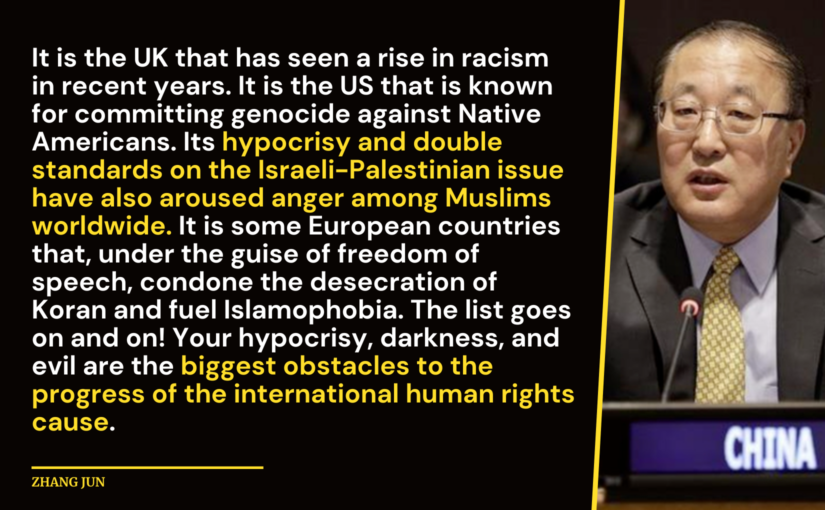
Western powers hypocritical in smearing China on Xinjiang but neglecting Palestinians’ suffering
China strongly opposed the US, UK, and a small number of other nations’ attempts to misuse the UN platform to incite conflict and baselessly defame China after they groundlessly blamed China on topics related to the country’s Xinjiang region at a session of the UN General Assembly. Analysts said that the world has once again witnessed the hypocrisy and political motivations of the US and some other Western nations as they claim to “care about” Muslims in China’s Xinjiang area, who live peacefually, while turning a blind eye to the pain of the people in Gaza.On 18 October 2023, the UK ambassador to the UN, James Kariuki, read a joint statement about putative human rights violations in Xinjiang at the Third Committee of the 78th session of the United Nations General Assembly.
The statement – which was signed by Albania, Andorra, Australia, Austria, Belgium, Bulgaria, Canada, Croatia, Czechia, Denmark, Estonia, Eswatini, Fiji, Finland, France, Germany, Guatemala, Iceland, Ireland, Israel, Italy, Japan, Latvia, Liberia, Liechtenstein, Lithuania, Luxembourg, Moldova, Monaco, Montenegro, Nauru, Netherlands, North Macedonia, New Zealand, Norway, Palau, Paraguay, Poland, Portugal, Republic of Marshall Islands, Romania, San Marino, Slovakia, Slovenia, Spain, Sweden, Switzerland, Tuvalu, Ukraine, the US and UK – repeated the various now-familiar tropes about the treatment of Xinjiang’s Uyghur population: “arbitrary detention and systematic use of invasive surveillance on the basis of religion and ethnicity”, forced labour, forced sterilisation and more.
At the same session, Pakistan, on behalf of 72 countries, made a statement explicitly supporting China’s position on Xinjiang-, Hong Kong- and Tibet-related issues, strongly opposing the politicisation of human rights, double standards, and interference in other countries’ internal affairs under the pretext of human rights.
Meanwhile Venezuela, on behalf of 19 members of the Group of Friends in Defense of the Charter of the United Nations, made a joint statement to support China’s position and to fiercely criticise the Western powers’ outrageous double standards in the field of human rights, racial discrimination and unilateral coercive measures.
The following article, originally carried in Global Times on 19 October, summarises ambassador Zhang Jun’s contribution to the session, in which he resolutely rebuffs the slanders thrown by the imperialist countries and their hangers-on. Observing that the whole narrative around Xinjiang is aimed entirely at weakening and maligning China, Zhang noted the astounding irony of accusing China of anti-Muslim discrimination at a time when Gaza is facing a ferocious assault and the same countries throwing accusations at China are at the same time impeding a ceasefire in the Middle East.
Zhang further addressed the rise in racism and Islamophobia in the Western world:
It is the UK that has seen a rise in racism in recent years. It is the US that is known for committing genocide against Native Americans. Its hypocrisy and double standards on the Israeli-Palestinian issue have also aroused anger among Muslims worldwide. It is some European countries that, under the guise of freedom of speech, condone the desecration of Koran and fuel Islamophobia. The list goes on and on! Your hypocrisy, darkness, and evil are the biggest obstacles to the progress of the international human rights cause.
With the countries of the Global South, including the vast majority of Muslim-majority countries, showing their support for China, it’s abundantly clear that “the political plot to destabilize Xinjiang and contain China has long been seen through by the world and has already completely failed”.
On Wednesday, James Kariuki, UK Deputy Permanent Representative to the UN, represented some countries and delivered a joint statement at the 78th session of the UN General Assembly’s Third Committee, in which they alleged China has “violated” human rights of Muslims minorities in the country’s Xinjiang region.
Zhang Jun, China’s permanent representative to the United Nations, strongly refuted these accusations and stated that the bad habits of a few countries like the UK and the US remain unchanged, as they once again abused the Third Committee of the General Assembly to provoke confrontation and groundlessly accuse China, which China firmly opposes and strongly rejects.
“I want to seriously tell a few countries like the UK and the US that the various lies and deceptions about Xinjiang cannot deceive the world. Currently, Xinjiang enjoys social stability and harmony, economic prosperity and development, and religious harmony. These are basic facts that any unbiased person can see clearly,” Zhang said.
No matter what political performance the US, UK and some countries put on or how desperately they try to rally other countries, their political plot to destabilize Xinjiang and contain China has long been seen through by the world and has already completely failed, said Zhang.
While refuting lies about China’s Xinjiang region, Ambassador Zhang also warned that a few countries like the UK and the US that using human rights issues as an excuse to accuse and attack China cannot cover up their own blemishes.
“It is the UK that has seen a rise in racism in recent years… It is the US that is known for committing genocide against Native Americans… Its hypocrisy and double standards on the Israeli-Palestinian issue have also aroused anger among Muslims worldwide. It is some European countries that, under the guise of freedom of speech, condone the desecration of Koran and fuel Islamophobia… This list can go on and on! Your hypocrisy, darkness, and evil are the biggest obstacles to the progress of the international human rights cause,” Zhang added.
It is not uncommon to see the US and other Western nations take advantage of international forums, particularly the UN Assembly, to “siege” China by spotlighting “human rights” issues in China’s Xinjiang. Their goal is to keep these topics the focus in the international media and to continue stigmatizing China, analysts said.
“China has invited foreign diplomats, reporters, professors, and individuals from a variety of fields to see what actually happened in the Xinjiang region with their own eyes for the past few years. These individuals have then come out to debunk lies propagated by anti-China forces in the US and other nations,” Jia Chunyang, an expert at the China Institutes of Contemporary International Relations, told the Global Times.
“Do the US and other Western countries sincerely care about the welfare of Muslims across the world? The response is ‘no,'” Jia brought out the worsening discrimination toward Muslims living in the US.
Additionally, the US and some Western nations ignore the suffering of Palestinians in the Gaza Strip while voicing their “concerns” for Muslims in China’s Xinjiang region – this amply demonstrates that their true priorities are to use the Xinjiang topic to contain China rather than to genuinely care about the lives of the people living there, analysts said.
Also on Wednesday, the US vetoed a UN Security Council resolution that would have called for “humanitarian pauses” to deliver lifesaving aid to millions in Gaza, according to media reports.
The US’ biased stance on the current situation in the Middle East fully exposed its hypocrisies and its practices of politicizing and instrumentalizing human rights, Wang Jiang, an expert at the Institute of China’s Borderland Studies at Zhejiang Normal University, told the Global Times.
The West and the US have historically contributed to the human rights cause, but what they are doing now completely contradicts the ideas and perspectives that were first introduced about human rights. The US and certain other Western nations have various standards on human rights for other nations, as well as for adversaries and allies, and which standard they employ depends on their own political requirements, Wang said.
Ambassador Zhang on Wednesday also criticized the US and some Western countries’ politicization of human rights, noting that such actions are “completely unpopular.”
On Wednesday, the representative of Oman, on behalf of the six member states of the Gulf Cooperation Council, made a joint statement in support of China. In the meeting held the previous day, developing countries and friendly nations actively spoke in support of China.
https://socialistchina.org/2023/11/03/w ... suffering/
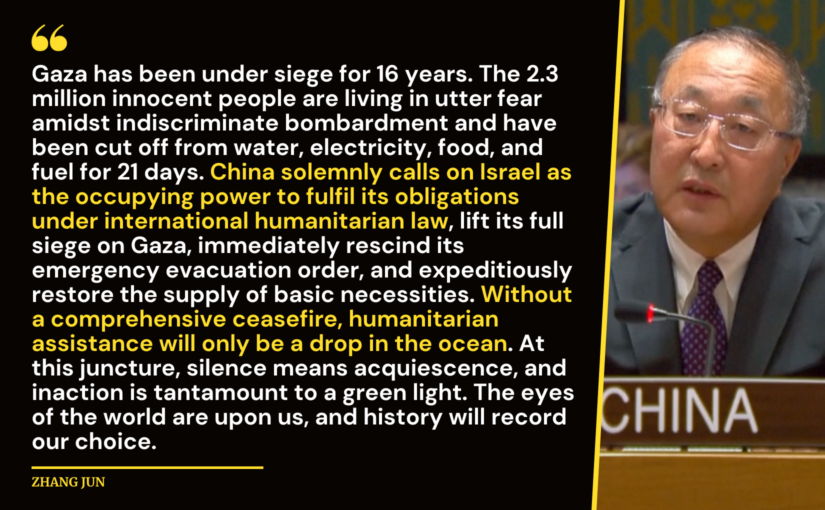
Zhang Jun: Without a comprehensive ceasefire, humanitarian assistance will only be a drop in the ocean
Mr. President.After four attempts to pass a resolution in the United Nations Security Council (UNSC) on the conflict in Gaza had already failed, due to the imperialist powers, led by the United States, aiding and abetting Israeli genocide, China, joined by the United Arab Emirates (UAE), currently a non-permanent member, called for an emergency UNSC meeting on October 30.
In his remarks to the meeting, Ambassador Zhang Jun noted that on Friday October 27, an emergency special session of the United Nations General Assembly (UNGA) had, by an overwhelming majority, adopted a resolution calling for an immediate and durable humanitarian truce leading to the cessation of hostilities.
“Regrettably and unacceptably however, Israel, turning a deaf ear to the common concerns of the international community, has chosen to further escalate its military operations in Gaza and formally declared the launch of a ground assault.”
Noting the warning made by UN Secretary-General Guterres that the people of Gaza are facing an “avalanche of human suffering”, the Chinese Ambassador went on:
“Having one of the highest population density in the world, Gaza is a land that has been under siege for 16 years. The 2.3 million innocent people are living in utter fear amidst the indiscriminate bombardment and have been cut off from water, electricity, food, and fuel for 21 days. Just this past weekend, they experienced a communication blackout that lasted for nearly 36 hours. If left unchecked, the situation will spiral further out of control and an even greater humanitarian catastrophe will be inevitable.”
After expressing, “our deep sympathy to the people in Gaza who are struggling on the brink of life and death,” Zhang Jun said:
“China solemnly calls on Israel as the occupying power to fulfil its obligations under international humanitarian law, lift its full siege on Gaza, immediately rescind its emergency evacuation order, and expeditiously restore the supply of basic necessities so as to prevent an even larger humanitarian disaster.”
And clearly addressing himself to the United States, he added:
“China solemnly calls on a certain major country with special influence on the parties concerned to put aside its self-interests and geopolitical considerations and make every effort to stop the war and restore peace.”
He warned of the real dangers of escalation: “There will be no firewall in Gaza… The situation in the West Bank and along the Lebanese-Israeli border has already sounded the alarm.”
Although humanitarian assistance is vital: “Without a comprehensive ceasefire, humanitarian assistance, no matter how much there is, will only be a drop in the ocean. What the people in Gaza need now is more than just the reiteration by the Council of the importance of international humanitarian law and unfulfilled promises of protection. What they need is concrete actions to restore peace, uphold the rule of law, and save lives.”
In solemn words that match the gravity of the situation, and which all countries would do well to heed, Ambassador Zhang Jun concluded:
“At this juncture. silence means acquiescence, and inaction is tantamount to a green light. The eyes of the world are upon us, and history will record our choice.”
The next day, October 31, at the Chinese Foreign Ministry’s regular press conference, in response to a question from Chinese television, Spokesperson Wang Wenbin stated:
“For too long, Palestinian territories have been under illegal occupation. For too long, the Palestinian people’s right to independent statehood has been overlooked. And for too long, their basic rights have received no fundamental guarantee. This is the root cause of the cycle of conflict between Palestine and Israel. Such historical injustice must not continue.”
The following article was originally published on the website of the Permanent Mission of the People’s Republic of China to the United Nations.
First of all, I would like to thank Brazil for organizing today’s meeting upon the request of the UAE and China. I thank Executive Director Catherine Russell, Commissioner-General Philippe Lazzarini, and Ms. Lisa Doughten for the briefings. Their briefings underscored once again the gravity of the situation in Gaza and the urgency for the Council to act.
Last Friday, the 10th emergency special session of the General Assembly adopted by an overwhelming majority a resolution calling for an immediate and durable humanitarian truce leading to the cessation of hostilities. This reflected the widespread call on the part of the international community. Regrettably and unacceptably however, Israel, turning a deaf ear to the common concerns of the international community, has chosen to further escalate its military operations in Gaza and formally declared the launch of a ground assault.
Secretary-General Guterres has warned that the population in Gaza is facing an “avalanche of human suffering”. Having one of the highest population density in the world, Gaza is a land that has been under siege for 16 years. The 2.3 million innocent people are living in utter fear amidst the indiscriminate bombardment and have been cut off from water, electricity, food, and fuel for 21 days. Just this past weekend, they experienced a communication blackout that lasted for nearly 36 hours. If left unchecked, the situation will spiral further out of control and an even greater humanitarian catastrophe will be inevitable.
We express our deep sympathy to the people in Gaza who are struggling on the brink of life and death. And we are also deeply worried about the Middle East peace process which is on the brink of collapse.
China solemnly calls on the parties to the conflict to cease all hostilities, disengage immediately, put in place a humanitarian truce, and make every effort to prevent the situation from escalating further.
China solemnly calls on Israel as the occupying power to fulfill its obligations under international humanitarian law, lift its full siege on Gaza, immediately rescind its emergency evacuation order, and expeditiously restore the supply of basic necessities so as to prevent an even larger humanitarian disaster.
China solemnly calls for greater diplomatic efforts to facilitate the release of hostages without delay and to work on this basis to open up space for dialogue, so as to return to the track of a political settlement.
China solemnly calls on a certain major country with special influence on the parties concerned to put aside its self interests and geopolitical considerations and make every effort to stop the war and restore peace.
Mr. President,
The decades-long history of the Palestinian-Israeli issue has taught us that military means is not the solution. Absolute security cannot be achieved by imposing collective punishment on civilians, and violence for violence will only exacerbate hatred and confrontation. We call on the parties to the conflict to abandon their blind faith in the use of force and to commit themselves to breaking the cycle of violence and achieving common security.
There will be no firewall in Gaza. It is a dangerous myth to think that a contained war is possible there. Allowing the fighting in Gaza to continue could very well turn it into a military catastrophe that will engulf the entire region. The situation in the West Bank and along the Lebanese-Israeli border has already sounded the alarm. We call on all parties who are concerned about the spillover of the conflict to devote their efforts towards promoting a ceasefire in Gaza.
As long as the war rages on, more violations of international humanitarian law are bound to happen. Without a comprehensive ceasefire, humanitarian assistance, no matter how much there is, will only be a drop in the ocean. What the people in Gaza need now is more than just the reiteration by the Council of the importance of international humanitarian law and unfulfilled promises of protection. What they need is concrete actions to restore peace, uphold the rule of law, and save lives.
The Council has so far held several meetings on the Palestinian-Israeli Situation. It cannot be said that there was no consensus at all. The resolution just adopted by the General Assembly has also pointed the Council in the right direction. In the face of the current critical situation, China once again solemnly calls on the Council to strengthen unity, build consensus, and take responsible and meaningful actions as soon as possible. We believe that so long as we focus on the most pressing issues such as a ceasefire and an end to the fighting, the protection of civilians, and the prevention of a larger humanitarian disaster, it is possible for members of this Council to reach consensus, and indeed this is what we should do. At this juncture. silence means acquiescence, and inaction is tantamount to a green light. The eyes of the world are upon us, and history will record our choice.
Thank you, Mr. President.
https://socialistchina.org/2023/11/01/z ... the-ocean/
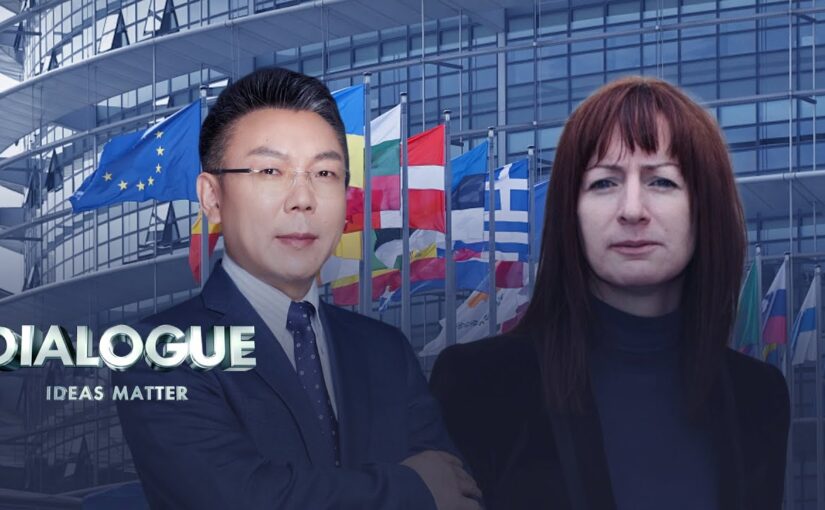
Clare Daly: ‘derisking’ from China would be suicidal for European industry
In this episode of the CGTN program Dialogue, Xu Qinduo interviews Clare Daly, the outspoken, anti-imperialist member of the European Parliament (MEP) from Ireland on the EU’s attitude towards the conflicts in Gaza and Ukraine, as well as on China.
Clare notes that the recent resolution on Gaza adopted by the European parliament, which she and her colleague Mick Wallace voted against, did not address the root causes of the conflict or the crimes, including ethnic cleansing and genocide, perpetrated by the Israeli apartheid state. The EU and the United States, she notes, are complicit in Israeli genocide and that makes them equally culpable in international law.
On Ukraine, she is not presently hopeful of prospects for peace. Rather she fears that working class Ukrainian men will continue to be killed in the interests of western arms companies who seek to perpetuate the conflict.
Asked about the moves to expand NATO to Asia, possibly starting with the establishment of an office in Tokyo, Clare responds that she has said before that the last bite of a dying snake is the most dangerous. US hegemony is in decline and there is no going back on this. But in its lashing out in desperation it is very dangerous. In this regard, she cites President Biden’s recent demand for US$100 bn for not only Israel and Ukraine but Taiwan as well. She feels that the US managed to provoke Russia and now seeks to do the same to China over Taiwan. However, she believes that Chinese diplomacy is more measured and the country will not walk into a similar trap.
Asked what impressed her most on her recent visit to China, she says there is not enough time to recount all the amazing things she saw. China, she notes, has built whole cities, but in Dublin it has not been possible to build even one metro station in 30 years. Ireland does not have a single high-speed train and neither does the US. Unfortunately, the EU has been following the US in seeking to restrict relations with China under the guise of ‘derisking’ and similar terms. Such a policy, she notes, if followed through, would be suicidal for European industry. In the face of these provocations, Clare advises China to continue with its diplomatic overtures and says she can think of nothing that China should be doing differently.
Within this situation, Clare asserts that Ireland has a special role to play. The EU is largely made up of former colonising powers or former socialist countries. Ireland, however, was colonised. It knows what it is like to be oppressed. Therefore, Ireland can be a voice for neutrality, non-alignment, multilateral cooperation and international solidarity.
The full interview with Clare Daly MEP is embedded below.
https://socialistchina.org/2023/11/01/c ... -industry/
